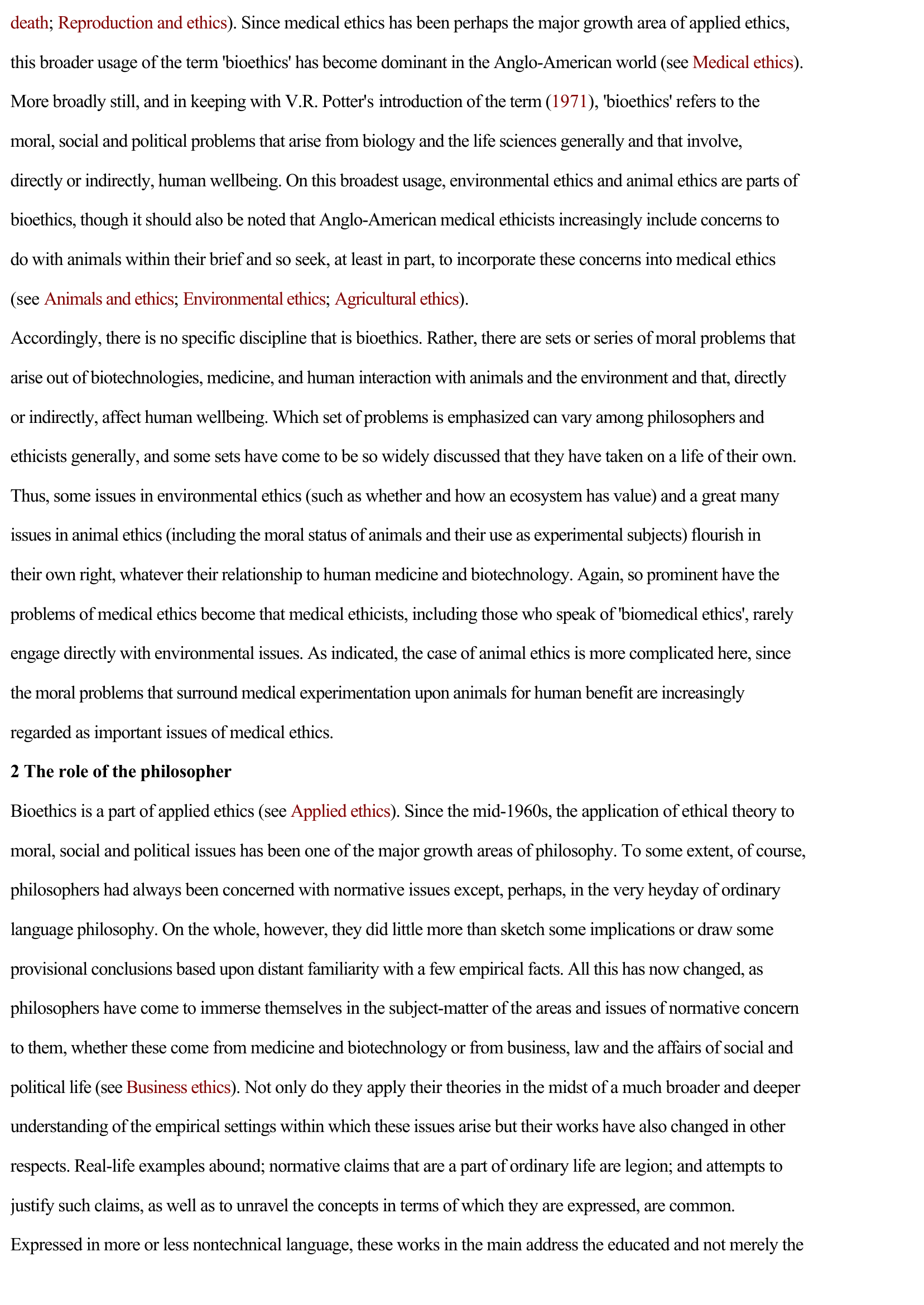Bioethics
Publié le 22/02/2012
Extrait du document
«
death ; Reproduction and ethics ).
Since medical ethics has been perhaps the major growth area of applied ethics,
this broader usage of the term 'bioethics' has become dominant in the Anglo-American world (see Medical ethics ).
More broadly still, and in keeping with V.R.
Potter 's introduction of the term ( 1971 ), 'bioethics' refers to the
moral, social and political problems that arise from biology and the life sciences generally and that involve,
directly or indirectly, human wellbeing.
On this broadest usage, environmental ethics and animal ethics are parts of
bioethics, though it should also be noted that Anglo-American medical ethicists increasingly include concerns to
do with animals within their brief and so seek, at least in part, to incorporate these concerns into medical ethics
(see Animals and ethics ; Environmental ethics ; Agricultural ethics ).
Accordingly, there is no specific discipline that is bioethics.
Rather, there are sets or series of moral problems that
arise out of biotechnologies, medicine, and human interaction with animals and the environment and that, directly
or indirectly, affect human wellbeing.
Which set of problems is emphasized can vary among philosophers and
ethicists generally, and some sets have come to be so widely discussed that they have taken on a life of their own.
Thus, some issues in environmental ethics (such as whether and how an ecosystem has value) and a great many
issues in animal ethics (including the moral status of animals and their use as experimental subjects) flourish in
their own right, whatever their relationship to human medicine and biotechnology.
Again, so prominent have the
problems of medical ethics become that medical ethicists, including those who speak of 'biomedical ethics' , rarely
engage directly with environmental issues.
As indicated, the case of animal ethics is more complicated here, since
the moral problems that surround medical experimentation upon animals for human benefit are increasingly
regarded as important issues of medical ethics.
2 The role of the philosopher
Bioethics is a part of applied ethics (see Applied ethics ).
Since the mid-1960s, the application of ethical theory to
moral, social and political issues has been one of the major growth areas of philosophy.
To some extent, of course,
philosophers had always been concerned with normative issues except, perhaps, in the very heyday of ordinary
language philosophy.
On the whole, however, they did little more than sketch some implications or draw some
provisional conclusions based upon distant familiarity with a few empirical facts.
All this has now changed, as
philosophers have come to immerse themselves in the subject-matter of the areas and issues of normative concern
to them, whether these come from medicine and biotechnology or from business, law and the affairs of social and
political life (see Business ethics ).
Not only do they apply their theories in the midst of a much broader and deeper
understanding of the empirical settings within which these issues arise but their works have also changed in other
respects.
Real-life examples abound; normative claims that are a part of ordinary life are legion; and attempts to
justify such claims, as well as to unravel the concepts in terms of which they are expressed, are common.
Expressed in more or less nontechnical language, these works in the main address the educated and not merely the.
»
↓↓↓ APERÇU DU DOCUMENT ↓↓↓

































